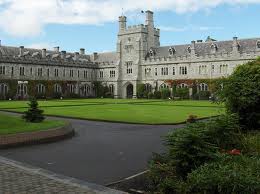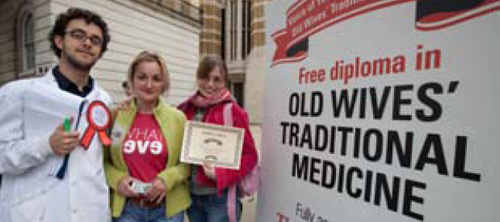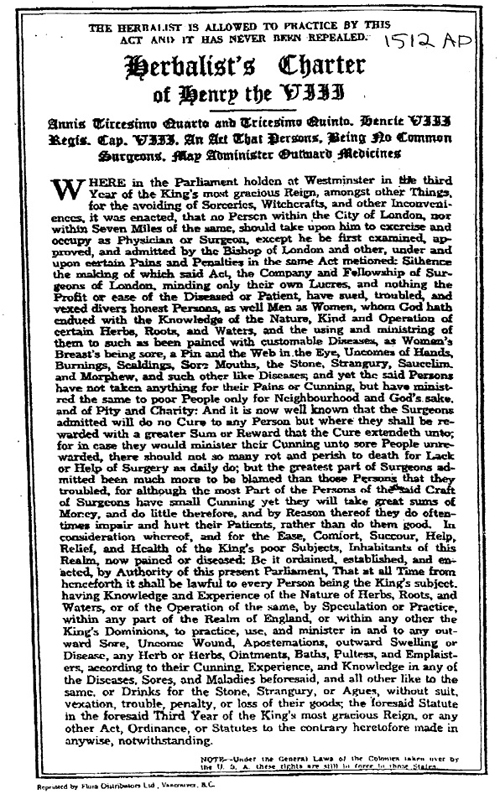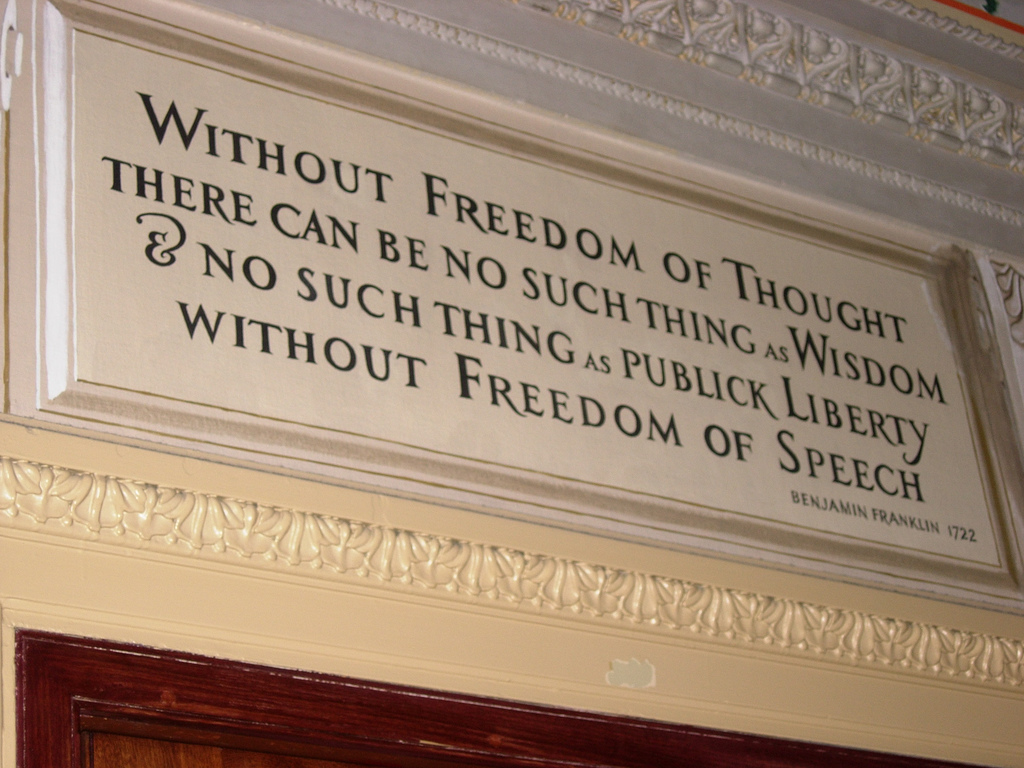By Adam Smith
Science & Communications Officer, ANH-Intl
While today we can bring you some good news – not always easy in these troubled times! – we also want to take this opportunity to begin to expose a vitally important issue. An issue that we think is not only incredibly relevant to those who practise some form of natural medicine or who use natural healthcare products of some type, but also to anyone with a child at university. In fact, I’ll go further and say it may well be relevant to anyone with interests in the social and political impacts of science, the search for truth, or the insidious nature of particular political agendas. Intrigued? I hope so, because things may start to get interesting soon.
Skeptics get hammered in Cork
On Monday 1 November 2010 in the Republic of Ireland, an event that seems to have been designed to manipulate the minds of young, impressionable medical students appears to have backfired. In a debate jointly hosted by the University College Cork (UCC) Philosophical Society and Medical Society, a motion entitled “That this house believes alternative medicine does more harm than good” was defeated by a two-thirds majority.

The main quad at the University College Cork
Dr Paul O’Donoghue, Principal Clinical Psychologist and head of the Psychology Department at the Central Remedial Clinic in Dublin, proposed the motion, which was seconded by Professor Tom Cotter, Head of the UCC Biochemistry Department. It is possible for the reader to get some idea of the intention behind the debate from the fact that Dr O’Donoghue is a founder member of the Irish Skeptics Society. David Tredinnick MP, guest speaker and member of the House of Commons Health Select Committee and Chair of the Parliamentary Group for Integrated Healthcare, opposed the motion together with Orla Broderick, nurse and member of the Irish Society of Homeopaths.
Open debate of any issue is always a good thing, and in today’s fevered atmosphere, discussion of the issues surrounding healthcare and natural or non-orthodox medicine is especially welcome. University students can arguably be considered the most promising and open young minds in the country, and it is instructive to note that this audience roundly disagreed with the notion that alternative medicine is a negative influence on society.
Even more interesting is the evidence that swayed their decision: according to Mr Tredinnick, “It was examples of how homeopathy had been effective treating medical conditions where conventional medicine could not find a solution; examples of Chinese herbal medicine and acupuncture helping patients conceive when IVF had failed and effective relief of back pain from chiropractors and osteopaths that swung the audience against the motion and in favour of alternative medicine.”
Of course, some would have you believe that all of these positive effects are nothing more than the fabled placebo effect, or even that no genuine debate could ever be won by proponents of alternative medicine. David Colquhoun commented on a separate debate, held at University College London, his own institution, on 25 October 2010. This one concerned funding of homeopathy by the NHS, and apparently "All the homeopaths in the home counties had been wheeled in, and the motion was lost by a narrow margin, so we have no idea what the students thought."
"The homeopaths, though, were bitter and angry. I felt a little sympathy for them. After many years of selling their delusions happily (and usually sincerely) to sick people, suddenly they find the spotlight on them. Both their delusions and their incomes are under threat. They know they have lost the battle and the cognitive dissonance must be hard to bear." So, once again a motion condemning a non-orthodox modality was defeated in an open debate at a prestigious university; but only because, we are assured, the homeopaths cheated. Autumn grapes can taste so sour.
The Voice of Young Science: a vehicle to close minds
Earlier this week, we were alerted to an ‘action’ being carried out by a group called the Voice of Young Science (VoYS).

Students being presented their 'diploma' by Voice of Young Science (source: BMJ 2010;341:c4953)
According to the British Medical Journal’s news page, “A group of researchers and young doctors handed out diplomas to members of the public outside the offices of the Department of Health on 8 September if they could answer correctly a series of questions based on old wives’ tales, such as what does an apple a day keep away”. They, were, apparently, “driven” to their qualification-bestowing antics to “protest against a proposal by the department [of Health] to set up a professional registration scheme for practitioners of traditional medicine, including acupuncture, herbal medicine and [traditional] Chinese medicine [TCM]”.
This protest, and specifically the way it was organized and reported, has some interesting features. Firstly, the action itself used mockery and derision to make a rather banal point about the supposed shortcomings of the evidence base of traditional medicinal systems, rather than to address anything substantial about those systems. Secondly, absolutely no historical context is provided, either for the reader of the article or – although this is less surprising, as we shall see – of the reasons for the protest. Without wishing to be presumptuous, please allow me to offer a little historical tidbit of relevance. In her book “Green Pharmacy”, author Barbara Griggs makes the following observation of 16th-century medicine on page 55:
“The sheer length of his training [the full Oxford or Cambridge degree course lasted up to 14 years!] must have convinced the sixteenth-century physician that all available medical knowledge was now at his fingertips. To men like these – a well-bred and exclusively educated elite – it was unthinkable that anyone less well-trained than themselves should dare to describe himself as a doctor. It was even more unthinkable that the home-grown herbs used by amateurs and by vast numbers of illiterate quacks might possibly be more effective than the grand compounds…they prescribed for their wealthy patients.”
One aggrieved physician was known to remark:
“…for now [say they] every man without any study of necessary artes unto the knowledge of Phisick will become a Phisician…every man nay every old wyfe will presume, not without the mordre of many, to practyse Phisick.”

The Herbalist's Charter
The eventual result of the conflict between physicians and those who ministered to the poor in Henry VIII’s day was the regulation of medical practice, which led to a huge turf war between the various medical practitioners of the time – the physicians, surgeons and apothecaries – and a “gigantic void in medical care for the poor”. The so-called Herbalist’s Charter was enacted to ensure that the vast majority of people could legally have access to some form of medicine, and included the wording:
“…it shall be lawfull to every person being the King’s subject, having knowledge and experience of the nature of Herbs, Roots and Waters, or of the operation of same, by speculation of practice within any part…of the King’s dominions, to practise, use and minister in and to any outward sore, uncome, wound, apostemations, outward swelling or disease, any herb or herbs, ointments, baths, pultes and amplaisters, according to their cunning, experience and knowledge in any of the diseases, sores and maladies before-said, and all other like to the same, or drinks for the Stone and Strangury, or Agues, without suit, vexation, trouble, penalty, or loss of their goods.”
Of the 16th-century attitude to medical knowledge and access to curative herbs by the people, one is tempted to add: plus ça change, plus c'est la meme chose. The more things change, the more they stay the same.

Henry VIII
Indeed, VoYS insist in this article that giving traditional practitioners the legitimacy of qualified doctors (obviously a bad thing) “puts people at risk”. Which is odd, given that: a) orthodox medicine is the third leading cause of death in the United States; b) herbal medicine in any form, whether Western, TCM, Ayurveda or whatever, is arguably the safest widely practiced form of medicine in human history. (It is undeniable that herbal medical traditions have been around for thousands of years, and that every recorded culture has used plant-based medicine in some way. Therefore, when one considers the vast number of doses of herbal medicine taken historically, the number of adverse events is vanishingly small); and c) I distinctly remember being told not long ago that herbal medicine didn’t work at all and people were being taken for a ride. Furthermore, “We are confronted with the possibility of misdiagnosis, the failure to provide suitable medical treatment and dangerous drug interactions” – the entire attitude of the piece, and by extension, of VoYS, is that only orthodox medicine is valid and that traditional healers are incompetent and dangerous.
But why should we care about what one pressure group thinks? Well, one clue is in the name: the Voice of Young Science. Are university students signing up to VoYS – and you can bet there will be similar groups waiting in the wings – in the belief that they are striking a blow for academic truth and the power of reason? If they are, they are sorely misinformed if the content of this protest is anything to go by. We have nothing against the members of VoYS themselves, but we do have serious concerns about young people being briefed in a deliberately misleading manner, to go out and further mislead the public with distortions and half-truths. Consider this protest in the context of the university debates mentioned above, and one could almost be considered a reaction to the other. Not an immediate reaction, along the lines of “Oh no! We’ve lost a debate! Quick, round up some students, drill ‘em on the issues, give ‘em a nice logo and some money, and off we go!” More a long-term strategy to change the way young people look at the world of science.
The rise of ‘Astroturf’ campaigns
A piece earlier this week by George Monbiot in the Guardian on an unrelated issue contains one concept that is potentially of prime importance in this discussion. He proposes the existence of so-called ‘Astroturf’ campaigns, whereby political movements that appear to be the result of grassroots organisation are actually funded and directed by the establishment. His example is the Tea Party movement in the USA being covertly funded by the billionaire Koch brothers, as a means of pushing a low-tax, low-regulation environment that helps their business empire. Matt Taibbi in Rolling Stone magazine provided evidence of links between the Tea Party and the mainstream Republican Party, against which many Tea Party members are ostensibly protesting.
Regardless of the merits of these arguments as regards the Tea Party specifically, the concept of ‘Astroturf’ campaigns is a powerful one. It isn’t insane to consider that organizations such as VoYS could serve several useful purposes for powerful people with vested interests. After all, the status quo of pharmaceutical-led healthcare is subject to increasing awareness among the public of other, better ways forward. How better to influence young minds than to talk in the language of science, while using sleight of hand to obscure and distort the truth?
Why not then use these converts to influence their peers and the public, to eventually turn the tide against annoying instances of free thinking like the Cork and UCL debates? Wouldn’t it be a stroke of genius to turn young adults’ natural tendencies towards rebellion and subversion against undesired sectors of society, such as non-orthodox medicine practitioners? With their heads full of the right statistics (but never the inconvenient ones), the right studies (carefully selected), the right arguments (well rehearsed), these righteous warriors could be relied upon to spread truth and scientific knowledge (as decided by vested interests) among all and sundry: newspapers! Protests! TV! Blogs! The list is endless.
Speaking of blogs…like those ‘skeptic’ blogs, you mean? Hmmm, there are a lot of them these days, aren’t there? Worth a look, I’d say. Watch this space.
ANH-Europe homepage
ANH Good Science campaign page
ANH Health Choice campaign page








Comments
your voice counts
11 November 2010 at 10:11 pm
Oh, you are so right! Also thanks for the fantastic work you're doing, without people like you the prospect would be more than grim.
24 November 2010 at 12:19 am
Very interesting article.
A recent survey in DK revealed that 70 % of the new medical students had tried and had success with alternative medicine. There has been a demand to be more informed and they now receive 6 (!) lessons of information about alternative treatments in the curriculum. The crucial points is who will teach them and in which subjects. So far the 6 lessons will contain info about the dangerous mix of conventional and alternative medicines. We hope the studenst will demand a broder perspective.
08 February 2012 at 11:13 am
My 1st degree, from University College London, was in philosophy, including philosophy of science. I went on to complete an MA in the same subject, so think I may fairly claim to have been trained to think in a rational manner.So fortified, I turned my attention to early English literature & obtained several degrees including a Harvard PhD.
When I subsequently studied herbal medicine, it was with a mind trained in critical thinking & extremely well grounded in the social realities of the Tudor period, including the history of medicine. Initially, I studied in the USA with Native American teachers, Eclectic distance learning schools, Dr. Christopher's descendants. Then I returned to an English university to take a BSc which added anatomy, physiology, botany, & biochemistry to the languages I use to interpret the world.
All of this informs my practice as a medical herbalist.For me, there's no conflict between the concept of plant spirit medicine & biochemistry - the latter is the physical manifestation of the energy signature of the plant as it dances with human cells.
My informed opinion is that the recent attacks on CAM are not scientific - Karl Popper defined a scentific principle as on which is in practice falsifiable, & as others have noted, the anti-CAM lobby preaches a set of unquestioned beliefs - but rather, proceed from the machinations of interest groups funded by Big Pharma. Even flagship medical journals such as the J. of the American Medical Association have deplored the corrupt practices of these companies & their lackeys in government. The idea of 'independent experts' has become a sick joke, with sometimes as many as 2/3 of the members of advisory committees paid by pharmaceutical companies.
Herbal medicine does not use randomised controlled trials, which arguably are extremely unethical as they deliberately deprive sick people of real medicine.What we have instead is a treasure hoard of empirical evidence. In the case of English herbalism, there is a written tradition stretching back for 1000 years. Contemporary herbalists, if properly qualified, keep impeccable case history notes, & thus continue the tradition of gathering evidence from empirical observation.
Difficulties have arisen in part because people tend not to know about herbalists' training, & are sold over-the-counter 'herbs' (usually pills) by unqualified salespeople. These are like any other laboratory-prepared drug. In my practice, I use only organic herbs dried immediately after picking, or organic tinctures (plant matter, spring water, organic alcohol - nothing else). I have made a point of visiting growers' fields & inspecting their steeping vats, to see for myself that the plants were of good quality & the processing suitable. In addition, many organic suppliers now offer chemical analyses of their tinctures, since they produce these anyway as part of their quality control.
I am as certain as one reasonably can be that the medicine I prescribe is pure, & well suited to its purpose.
Statutory self-regulation may be thought to offer a way forward, by ensuring that herbalists are properly trained to an agreed standard. However, my concern is that if we hand over control to governmental bodies, & universities dominated by a historically-determined mechanistic philosophy, which produces a limited understanding of what constitutes scientific enquiry, we will lose the traditional knowledge passed on through the apprenticeship system, & become 2nd-rate copies of orthodox doctors. For me, this is too high a price to pay for the dubious privilege of joining the system. It is a matter of the liberty of Britons to choose for ourselves what we do or don't put in our own bodies. Protect our native herbs, protect our home-grown herbalists! We are a precious resource for you & for your family's future.
09 August 2012 at 9:58 pm
People who are student of medical, must read this article. They will be aware of what are they going through and what they should avoid. Keep going with your good work Adam. :)
Your voice counts
We welcome your comments and are very interested in your point of view, but we ask that you keep them relevant to the article, that they be civil and without commercial links. All comments are moderated prior to being published. We reserve the right to edit or not publish comments that we consider abusive or offensive.
There is extra content here from a third party provider. You will be unable to see this content unless you agree to allow Content Cookies. Cookie Preferences